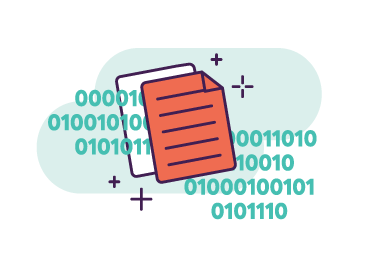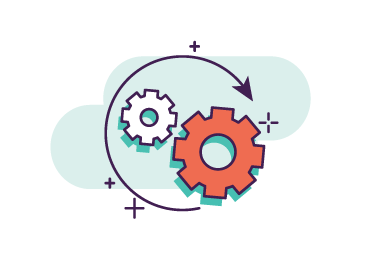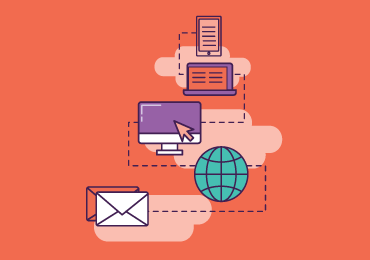The marketing cloud - a marketer’s swiss-army knife.
Although the name itself sounds like yet another vague buzzword, the marketing cloud is essentially a new category of software, typically available in the SaaS model. It allows for collection and analysis of data and execution of communication activities. Following the concept of integrated marketing communications, marketing cloud is also often known as the integrated marketing platform. In principle, the marketing cloud can be seen as a combo of two main functions: data management platform (DMP) and marketing automation.

DMP focuses on collecting and managing data from multiple channels. Ideally, DMP should enable the collection of data coming from sales departments (CRM), marketing departments (online analytics of the website, e-commerce platform, landing pages, mobile applications as well as offline channels, including POS or other physical brand interaction locations, e.g. exhibition booths or conferences) as well as post-sales departments (eg. customer support, maintenance, etc.). The role of the platform is to provide insights and help define the triggers of automated messaging across communication channels of the brand.
Marketing automation module relies on the insights delivered by the DMP and is used to structure campaigns and reach out to defined audience segments with tailored messaging.
Marketing cloud ecosystem is deployed and interconnected through the introduction of tracking codes across the brand’s communication channels: codes embedded on websites, in e-commerce platforms, sent emails and even in POS like cash registers or WIFI hot spots. Tracking codes, similar to Facebook’s Pixel or LinkedIn’s Insight Tag, allow for collecting data into the DMP, i.e.data on clients’ interaction within respective channels, like received or opened emails, emails’ links from emails opened in browser, filled-in forms, time spent on the website, the depth of website scrolling, etc.

These days marketing cloud vendors target predominantly Ecommerce or SaaS businesses. It also makes sense to apply it to all areas with potentially robust data logs. Therefore the takeaways from the automation of marketing can be seen by both digitally intensive businesses and those that only plan to shift from offline to online. At the same time, the marketing cloud goes beyond DMP or automation, giving digital marketers a range of handy campaigning tools , e.g. landing page generators, or emailing modules.. See the section “Interconnected modules of the marketing cloud - where your bill will come from” to learn more about potential functionalities of the marketing cloud.
Omnichannel - the challenge of merging mixed realities.
Collecting data from all of the brand’s communication channels is referred to as the omnichannel, enabled by the marketing cloud. While most marketers consider omnichannel to be a way of sending coherent messaging to their audiences, the idea of it has, in fact, a stronger link to data collecting from multiple channels. Coherent communication is thus only the consequence of data collection and its analysis.

Marketing Automation hopes and fears - marketing cloud & omnichannel
In the omnichannel approach, the marketing cloud helps marketers understand the process of customers’ interaction with the brand. It clarifies that the customers, in fact, use multiple channels to collect and compare the data. Customers might be researching a product online or via a mobile Omnichannel - the challenge of merging mixed realities. Marketing Automation - hopes and fears 7 app but make a purchase in a physical store, or the other way round: view a product in a store and make the purchase online. This process of research is called the customer journey. The DMP, if properly deployed, will collect the data from these multiple points and allow for channel attribution, i.e. an identification of channels and messages that have had a decisive role in a successful sale. Understanding the customer journey and being able to attribute success to relevant channels is key in defining the brand’s communication and media strategies. It also relates to such valid metrics as ROI or cost per lead.
These days there are a number of providers of marketing clouds/ marketing automation solutions, including HubSpot, Marketo, Oracle’s Eloqua, Synerise, UserEngage or SalesMango, SalesMango. It makes sense to test available solutions and speak directly with customer support or to delegate this task to a marketing agency responsible for the deployment and management of the tool. Each one of these tools offer slightly different capabilities and addresses various needs, so it’s advised to search for one which would fully meet the brand’s requirements.
Read more...


